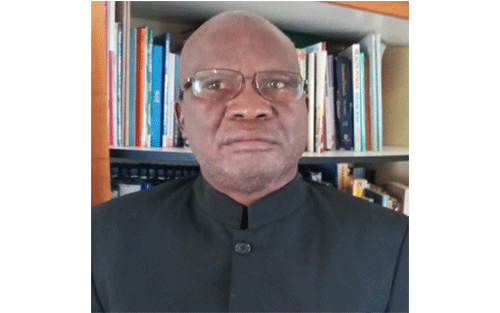Prof. Makala Lilemba
It is no longer a secret that Namibia is going to the polls at the end of this year to choose members of parliament and the president of the country.
It is against this background that all political parties should be gearing themselves up for the upcoming electioneering battle.
As it is the political culture in this country, all parties are campaigning and will be fielding presidential candidates, even if it is known that some parties will hardly get any seats. In addition, despite the low population of voters, political parties continue to mushroom.
One wonders whether our opposition politicians have learnt the simple lesson that they lose elections every electoral year because they usually divide their votes against the ruling party. It is time our opposition politicians learnt to forge ahead as a united front if they really want to unseat the well-consolidated power that be.
This they should also do by campaigning or running on a clean slate in a political context. This typically means or refers to many candidates presenting themselves as free from past controversies or scandals, focusing on their positive attributes and policies rather than past mistakes.
It is unfortunate that many political parties are always failing the ‘clean slate campaign,’ as many of them simply file candidates because they need to do so. After 34 years of electioneering, the country was supposed to come up with a uniform system in terms of the calibre of persons to occupy such high political offices. Blind loyalty to the party is truly not one of the methods of choosing members to join the political decision-making mechanism.
Campaigning on a clean slate requires that political parties emphasise transparency, integrity and a
commitment to ethical conduct.
Despite being members of political parties, candidates may highlight their lack of ties to special and personal interests such as ethnicity alignment, religious fanaticism, and even narcissism. Being a multi-ethnic nation, Namibia cannot afford to be led by stereotyped or shallow-minded politicians who cannot think beyond their ethnicity.
Unfortunately, this has been the trend across the political spectrum over the years. Being independent thinkers does not mean candidates should be detached from their political parties; it simply means they should exercise some amount of independence from political machines. They should also stress their record of community service or professional achievements to demonstrate their qualifications and trustworthiness.
This aspect is important, as all candidates are expected to serve the communities irrespective of their political orientations. Namibians need all sorts of services, whether they belong to the ruling party or the opposition, and the liberation struggle was meant to liberate every Namibian from all walks of life.
In addition, Vision 2030 was crafted to benefit every Namibian, and therefore, the country cannot afford to have sections of people living under different social strata. Moreover, it involves a forward-looking approach, with candidates outlining their vision for the future and concrete plans to address pressing issues facing their constituents.
By positioning themselves as agents of positive change, candidates can appeal to voters who are disillusioned with traditional politics and seeking fresh leadership. This element is crucial during this election, as people need candidates who have the interests of the people at heart.
Unfortunately, the chairperson of the Sibbinda Swapo branch and a few of his henchmen happen to fail this test. Since the indunaship struggle in 2020, his faction has been at the forefront of making the lives of the Sibbinda community miserable by deliberately opposing everything, including government-sponsored projects.
His faction has blocked the building of the state-of-the-art district hospital, and vehemently rejected the establishment of a settlement in Sibbinda constituency. As if that is not enough, he has led a campaign of disobedience against the democratically-elected induna of Sibbinda district and that of the Mafwe Traditional Authority, which has recognised him and given him the mace of authority.
His faction also confiscated the official date stamp of the Khuta in 2020, and the local Khuta has been operating without this symbol of authority. Against all odds, this is the member of the ruling party at the forefront of campaigning for the party during the upcoming elections. Many people are aware of all his actions, and from every intent, it is likely that the party may again fare badly if the branch chairperson is put in charge of political electioneering for the ruling party.
What is disturbing is that police in the region and the Mafwe Traditional Authority are aware of the activities of the chairperson, yet they look the other way. If the ruling party cannot bring the members to order, it is likely to lose the constituency again this election. One cannot fool all the people all the time anymore, as they can analyse the right people to lead them.
For political parties to win elections, it’s essential for candidates to ensure that their clean slate narrative is authentic and supported by their actions. In the Sibbinda constituency, the chairperson’s actions, especially his stance against government-sponsored projects, mean that he is aiding the opposition parties to tell the electorate that Swapo has failed its service delivery mission.
If he is ever a genuine member of the ruling party, he should embrace the government’s efforts to bring services and peace to the people. Any perceived inconsistencies can undermine Swapo’s credibility, and erode public trust. Thus, maintaining consistency and honesty throughout the campaign is crucial for success.
*Prof. Makala Lilemba is an academician, diplomat, motivational leader, researcher and scholar.



